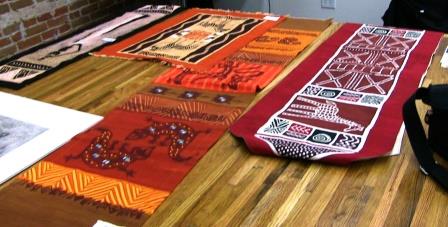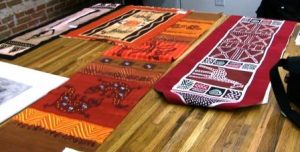Blog
ZATA Project Fighting Against HIV-AIDS in Zimbabwe

This may just be temporary, as the disease remains a big challenge, a health issue that is not going away or abating anytime soon.
While the rates of transmission in Zimbabwe have decreased, the consequences remain. Demographics, as well as economic opportunities, have all been impacted.
In looking forward, there is hope that the next generation of scientists, governments, and philanthropic organizations will stay at the forefront in the fight to combat, if not eliminate, HIV/AIDS.
This is at the heart of the message, which remains an important part of the conversation in Zimbabwe, throughout Africa, and around the world. Colorado is a part of that story.
With the holiday season in full swing, Africa Agenda was honored and thrilled to sit down, on December 18, for an on-camera interview with Jane Oppenheim, the President of the Board of Directors for the ZATA Project.
Footage of the full interview, Part 1 and Part 2, is available on the Africa Agenda YouTube Channel. Please be sure to check it out to learn more.
The ZATA (Zimbabwe AIDS Treatment Assistance) project was established as a non-profit in 2004 and is headquartered in Greenwood Village, Colorado.
In the United States, the ZATA Project continues to offer opportunities in both scientific research and the arts–in enabling accessibility to anti-retroviral treatment for HIV/AIDS infected patients in Zimbabwe.
Oppenheim spoke excitedly about the accomplishments of ZATA-sponsored AIDS research at the University of Zimbabwe. The university, through ZATA, works collaboratively with the University of San Diego-California and the University of Colorado – Denver on clinical research for HIV/AIDS treatment.
In the 10 years since ZATA was founded, Oppenheim has not been afraid to push the boundaries and portray another side of the “Africa AIDS narrative” that many Americans do not get to hear.
Ultimately, it is not about this person or that person, she says. It is about a country and its people and what has happened – good and bad – that can propel Zimbabwe in a different direction.
Gracious and mindful of her visit to the Southern African country, Oppenheim was quick to highlight that research appears to be proving effective as HIV/AIDS rates have fallen from 27% in 1997 to 14% in 2009.
But plenty of challenges remain. ‘We’ve kind of made AIDS chronic diseases. And we don’t see the co-morbidities we had in the early ’90s and early 2000s,” she said.
Speaking about the progress that has been made in the treatment of patients in Zimbabwe, Oppenheim stated, ‘It is getting better. PEPFAR is there. When you give AIDS drugs early, you do inhibit transmission. So—you do not see a high percentage of the population getting AIDS’
Prior to the commencement of PEPFAR (Presidents Emergency Plan for AIDS Relief), established during the administration of former U.S. President, George W. Bush—HIV/AIDS assistance to the people of Zimbabwe was very limited.
ZATA played an important role, sort of a ‘mini-National Institutes of Health (NIH) in Zimbabwe, even while it had its own funding challenges as an organization, Oppenheim explained.
Moreover—to further its mission–ZATA also purchases arts from artists in Zimbabwe, resells them, through auctions, in the U.S., and directs the funds towards post-research care for Zimbabweans affected by the disease.
‘We are putting that artwork in peoples’ homes, and when they see it, they understand the country a little more, even when they have not been to Zimbabwe…what a wonderfully rich country it is, despite the headlines about the politics,” she said.
The connections and partnerships that have been built along the way, are of the utmost importance. Oppenheim emphasized this point in our discussion. ‘It’s added a lot to my worldview that the world is a good place. If you sit in front of a TV every day, you do not think that. But I know it to be true.’
Cumulatively, an estimated $300,000 has been raised by the organization.
As Oppenheim and ZATA look to the future, she says there will be an expansion of the networks stateside. She cited an impending move and transition of the art auctions to a host site in California. Additionally, she said the project will be funneling more investments into a variety of projects that address sustainability outside of AIDS treatments themselves.
An example is the recent Broccoli Farm Project, where women are learning to farm, harvest, and sell broccoli as a means of self-reliance and income generation.
To take part in ZATA’s AIDS awareness, advocacy, activism, and arts, please visit this link

